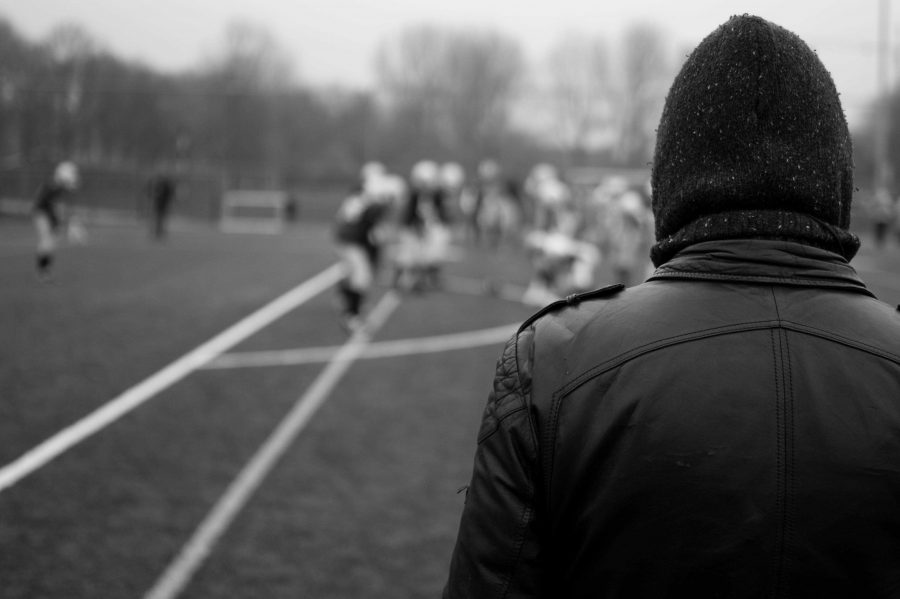In 2002, high school football star Brian Banks was falsely accused for raping a classmate and then was sentenced to six years in prison. It wasn’t until 2012 that the accuser’s story was found to be untrue; but by then, Banks had served over five years in prison and five years of high custody parole.
The world found itself dealing with a similar rape case this summer. Stanford University freshman Brock Turner was a young swimmer who raped an unconscious 22-year-old woman in January 2015. The crime occurred after a party on the Stanford campus. Although both athletes faced the same charges and Turner was declared undoubtedly guilty, he walked away with a sentence of six months. Despite protests, he was released this Sept. 2 after serving only three months due to his ‘good behavior’ in jail. He is currently on probation and living with his parents in Sugarcreek Township, Ohio.

The difference between Banks and Turner? Banks is black and Turner is white.
According to a study done by the University of Pennsylvania Law School, black people are 30 percent more likely to be imprisoned than whites if the same crime is committed. When a video of running back Ray Rice punching his fiancee in the face and knocking her unconscious went viral in 2012, Rice was charged with domestic abuse and removed from the Baltimore Ravens. Although he has completed his prison sentence, the NFL has yet to sign him back on.
This is not a problem white New York Giants kicker Josh Brown has; despite the domestic violence report Brown’s wife filed against him in 2015, the only thing the NFL did was give him a one-game suspense.
Fair?
Not in the eyes of New York Daily News’ Seth Walder. Not only is a one-game suspense incomparable to Rice’s extended ban for the same crime, Walder has recently found police reports that Brown’s wife had detailed over 20 accounts of physical abuse — some being throwing her to the floor and kicking a bathroom door off its hinges — all of which were ignored by the NFL.
Whether Rice will play professional football again is uncertain, but despite Brown’s 2015 arrest and new evidence against him, his career isn’t endangered.
Rice is black and Brown is white.
The alleged reason behind why the NFL responded differently to Brown’s domestic violence report? After Rice, the NFL created a new policy on domestic issues, claiming the power to judge each player’s cases and issue punishment that is appropriate to the situation. Brown’s assault on his now ex-wife was declared minor enough that he was only suspended for one game. What doesn’t make sense is why Rice’s own case on domestic abuse, though very similar to Brown’s in terms of the severity of the attack, has yielded very different punishments.

What is white privilege? White privilege isn’t just how a white athlete can get away with something a black athlete would never be able to do. Professor Peggy McIntosh, an anti-racism activist who has taught at three different universities, describes it in a 1988 paper titled “White Privilege and Male Privilege: A Personal Account of Coming to See Correspondences Through Work in Women’s Studies” as the unearned assets and advantages of a white American. Those assets and advantages apply to all aspects of society, whether it’s finding a job or buying a house. Racial background gives white people respect and privilege that other races are not offered as often; it plays a role in deciding how certain groups of people are treated. It plays a role in deciding how easily someone can get away with a crime.
The decision to release Turner after only three months of prison was not based on the severity of the crime he committed, but on his background. Turner’s father emphasized in a letter how the case had affected his son, completely casting aside the victim’s story and describing Turner as an athlete with a bright, shining future that was taken away from him. Judge Aaron Persky, the judge responsible for the case, decided to restore that shining future for Turner and lessen his punishment. According to him, he was trying to be fair to both sides.
Fair like how the NFL said it was being fair to Brown?
Black athletes receiving more severe sentences than white athletes for the same crime is not fair. In the sports world, where good and ‘fair’ sportsmanship is one of the most valued ideals, societal problems about how to treat people of color in sports are only encouraging racial discrimination even more frequently. The treatment that accused black athletes are receiving these days is far from fair, and unlike Turner’s future (assuming he gets away with what he did), their futures look bleak.





















